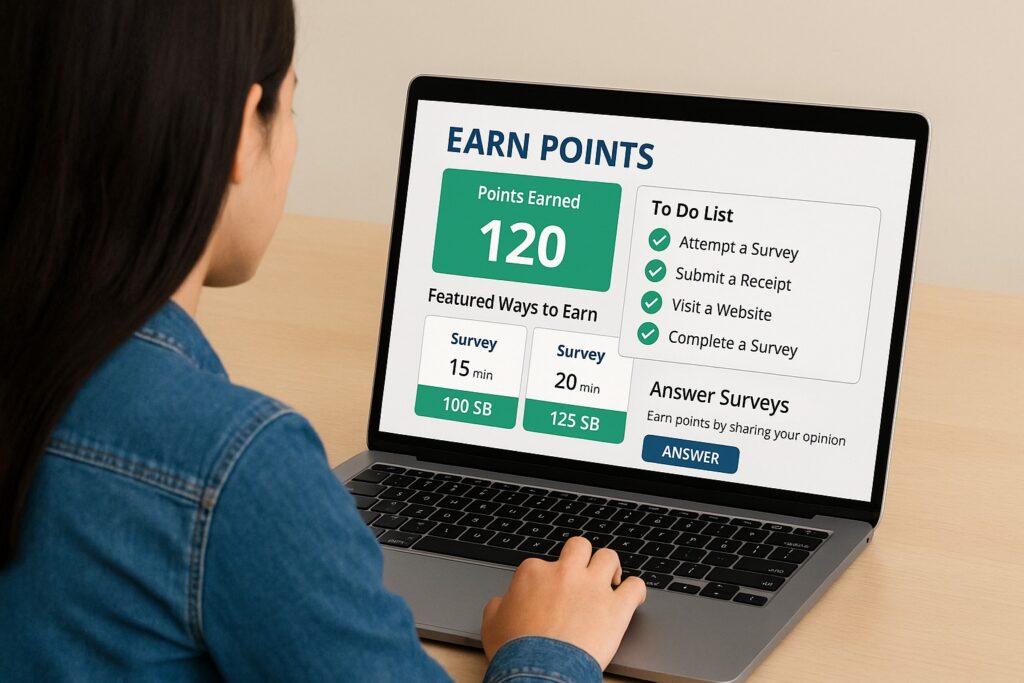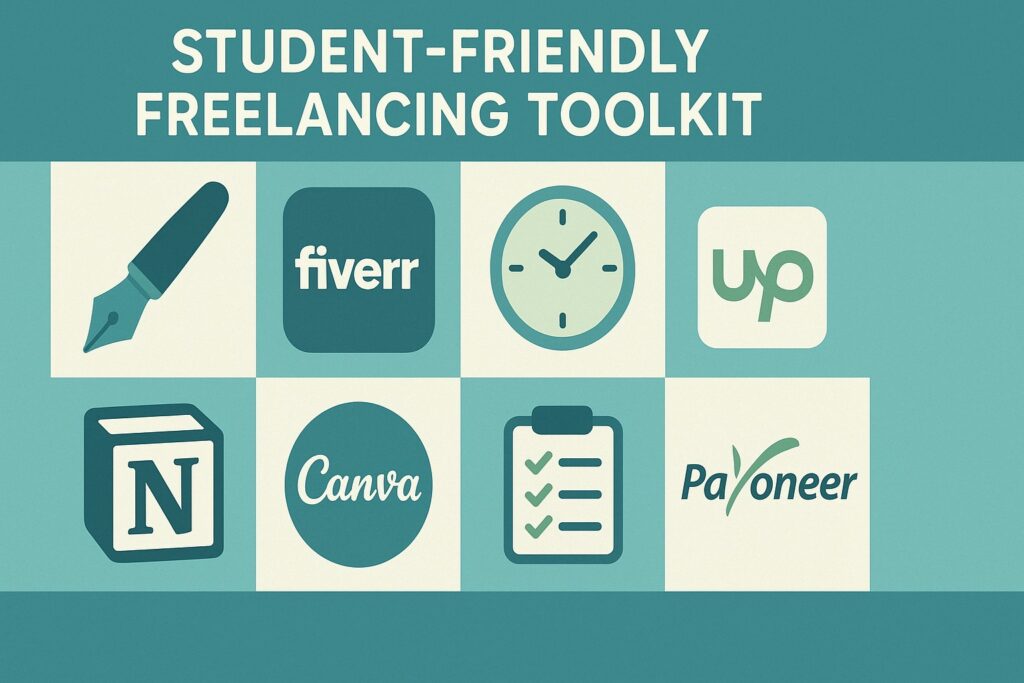Table of Contents
Introduction
Managing your finances as a student can be a serious challenge. With rising tuition, living expenses, and limited time, many students are searching for how to make money while studying without harming their academic performance.
This comprehensive guide will show you practical, realistic, and actionable strategies to earn income—online and offline—while keeping your study schedule intact.
By the end of this tutorial, you’ll learn:
- Proven methods to earn as a student
- Time-saving tools and platforms
- How to balance academics with part-time work
- Mistakes to avoid and success indicators
Estimated Learning Time: 10–15 minutes
Difficulty Level: Beginner-friendly with scalable options

Prerequisites/Requirements
Before jumping into money-making strategies, it’s important to set the right foundation.
- Skill Level: Beginner (no prior experience required)
- Time Investment: 1–3 hours/week (minimum)
- Tools Needed: Smartphone or computer, internet access
- Budget: Most methods are low-cost or free to start
- Mindset: Willingness to learn and manage time wisely
- Alternative Needs: Offline methods for students with limited internet access
Planning your week and understanding your academic workload is key before adding financial tasks.
Step-by-Step Process
Step 1: Start Freelancing on Trusted Platforms
Join websites like Fiverr, Upwork, or Freelancer. Set up your profile based on your skills—writing, graphic design, video editing, or even tutoring.
Pro Tips:
- Choose one niche and master it
- Use AI tools (like Grammarly or Canva) to boost quality
- Start with competitive pricing to build reviews
Common Mistake: Don’t overpromise when juggling classes.
Step 2: Offer Academic Tutoring or Notes Selling
If you excel in any subject, offer tutoring services online (via Preply, Cambly) or offline at your campus. You can also upload class notes on Studocu or Nexus Notes for passive income.
Expected Outcome: Regular $10–$50 per session
Avoid: Overbooking your calendar
Use apps like Swagbucks, InboxDollars, or Clickworker to complete surveys, watch videos, or small digital tasks.
Why it Works:
- No special skills needed
- Earn in your downtime
- Good for short, repetitive work
Troubleshooting Tip: If an app isn’t available in your region, try alternatives like Remotasks or ySense.
Step 4: Resell Items Online for Profit
Start a mini reselling business by sourcing cheap items from local markets or using OLX/FB Marketplace. Resell them on platforms like eBay or Daraz.
Expert Tip: Focus on one category (e.g., stationery or phone accessories).
Tools Needed: Camera phone, delivery setup
Common Pitfall: Ignoring shipping costs and buyer returns
Step 5: Create a YouTube Channel or Blog
Share educational content, tutorials, or daily routines as a student. Monetization starts when you build traffic and trust.
Progress Indicators:
- 1000 YouTube subscribers or 10k blog views
- Ad revenue + affiliate links = passive income
Pro Tip: Use tools like TubeBuddy (YouTube) or WordPress + Rank Math (blogs)

Step 6: Start an Online Store with Dropshipping
Use Shopify or WooCommerce to start a dropshipping business where you sell products without holding inventory.
What You Need:
- Niche selection
- Product source (AliExpress, CJ Dropshipping)
- Basic marketing (via Instagram or TikTok)
Expert Tip: Automate order processing with apps like Oberlo
Warning: Initial setup requires research and testing
Step 7: Remote Internships or Part-Time Gigs
Look for remote internships (on Internshala, Handshake) or content writing gigs. They provide experience and pay.
Common Mistake: Confusing unpaid internships with low-quality scams.
Fix: Always read reviews and seek paid offers only.
Advanced Tips & Best Practices
- Time Blocking: Allocate fixed time slots to work and study
- Track Income: Use Notion, Google Sheets, or Mint for budgeting
- Avoid Burnout: Prioritize rest and social life
- Networking: Use LinkedIn to connect with other student freelancers
- Skill Growth: Keep learning via Coursera or freeCodeCamp
- Avoid Spammy Jobs: Skip pyramid schemes or unpaid “training” gigs
- Batch Tasks: Group similar tasks to reduce context switching
- Referrals: Many apps/websites pay you for bringing in friends
Tools & Resources
| Tool Name | Purpose | Free/Paid |
|---|---|---|
| Fiverr | Freelancing | Free |
| Canva | Design (freelance help) | Freemium |
| Swagbucks | Surveys/microtasks | Free |
| Shopify | E-commerce store | Paid |
| Notion | Task + Budget management | Free |
| Grammarly | Improve writing quality | Freemium |
| Coursera | Skill development | Free/Paid |
Integration Tip: Pair time tracking (Toggl) with budgeting (Mint) to evaluate time ROI.

Measuring Success & Optimization
To know if you’re succeeding:
- Track Earnings: Weekly and monthly totals
- Time Log: Hours spent working
- Grades Check: Academic performance should remain steady
- KPI Examples: 3 clients/month, $100/mo passive, zero late assignments
- Improve: Adjust workload based on exam schedules
- Tool Tip: Use Notion or Excel to monitor income/study ratio
Next Steps & Advanced Techniques
Once you’ve mastered basic methods:
- Explore Passive Streams: eBooks, digital templates
- Learn SEO or Digital Marketing
- Build a Personal Brand via portfolio site
- Network with Alumni for Paid Gigs
- Apply for Paid Research Assistantships
Stay current with LinkedIn, Reddit student subreddits, and industry newsletters.
Conclusion
Making money as a student doesn’t mean sacrificing your academic success. By following this step-by-step guide on how to make money while studying, you’ve learned practical ways to earn online and offline—without burning out.
Choose one or two paths, commit weekly time, and track your results. Start small, stay consistent, and grow smart.
Ready to earn your first $100 while studying? Get started now!
How can I make money from my notes while studying?
You can upload your notes to platforms like Studocu, Nexus Notes, or OneClass. They pay based on downloads or direct sales. Ensure your notes are well-organized and handwritten or typed neatly.
How much time should I spend weekly on online jobs as a student?
Start with 5–10 hours/week. Use time-blocking to balance academics and income activities. Gradually scale as you become more efficient.
What’s the safest way to avoid scams while freelancing?
Use verified platforms like Upwork or Fiverr. Avoid any job that asks for money upfront or promises “guaranteed income.” Always read reviews.
Can I earn money without any specific skill?
Yes. Try microtask apps, online surveys, reselling used items, or affiliate marketing. You can also learn simple skills like Canva or writing in a few weeks.
Do I need a PayPal account to get paid online?
In most cases, yes. However, some platforms offer local bank payments or crypto alternatives like Payoneer or Wise. Check platform FAQs for payout methods.
Internal Links
- Learn the basics in our [Freelancing for Beginners Guide]
- Explore remote gigs in our [Online Jobs You Can Start Today]
External Links
- Fiverr – Official Freelancing Platform
- Coursera – Learn New Skills
- Swagbucks – Microtasks and Rewards
Study smart, earn smarter. You don’t have to wait until graduation to make money. 💸📚





